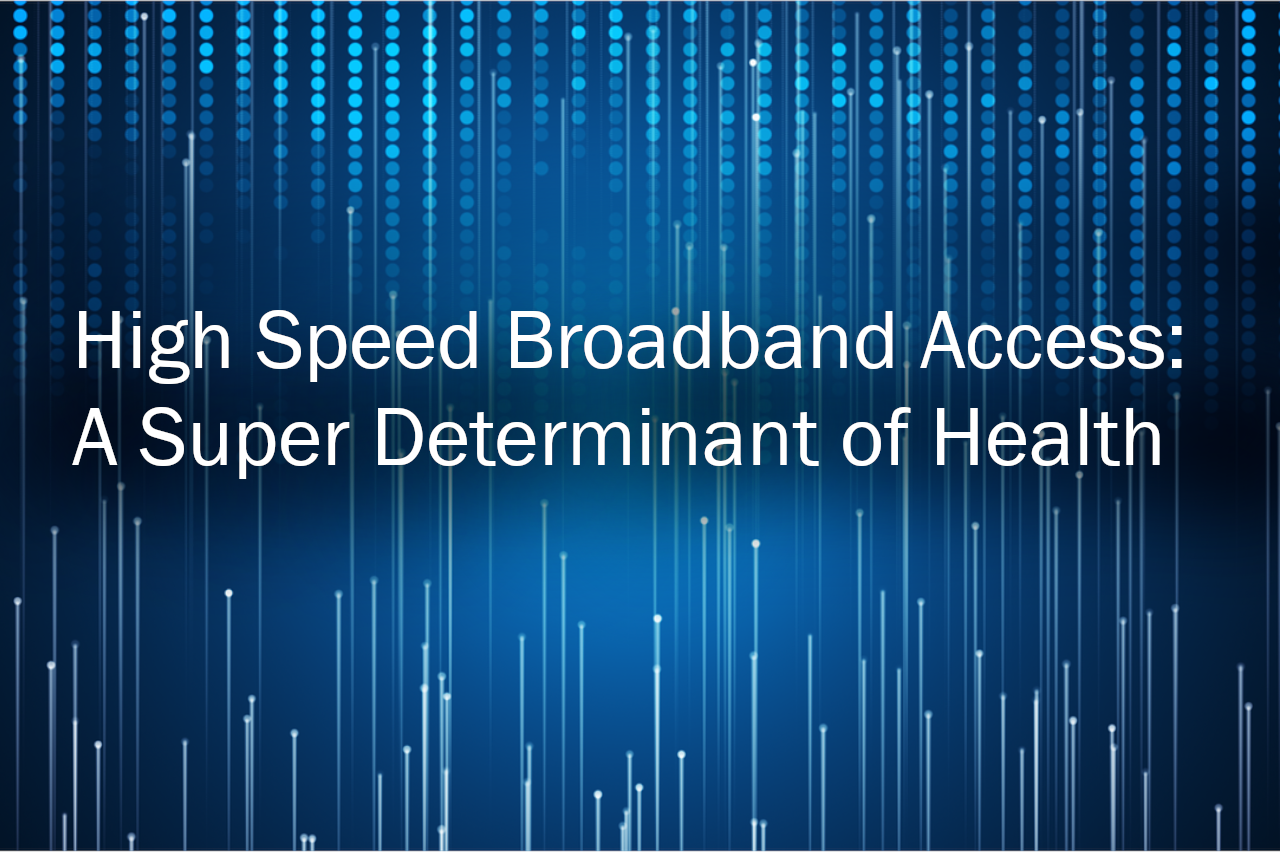
At the Health Fund, we support programs and measures that help to end the gap in access for Kansans and are excited to support Governor Kelly’s Kansas Digital Equity Plan which seeks to boost broadband access throughout Kansas. Recently, we offered supportive public comments to the Kansas Office of Broadband Development. To read our comments in full, visit here.
Dependable, high-speed internet is essential today for everyday life – including for work, school, and health care. However, nearly 30% of all Kansans lack adequate internet access and up to 1 million Kansans live in regions that lack access to high-speed broadband services at adequate speeds. This digital divide in terms of devices, digital literacy, and access to high-speed internet particularly impacts rural and low-income communities and communities of color.
Digital equity is more than a quality-of-life issue. It plays a significant role not only in the ability to access health care, but in the overall health of individuals and communities. An FCC task force is studying whether broadband connectivity should be considered a social determinant of health. Social determinants are the conditions where people live, learn, work, and play that account for as much as 80% of a person’s health status. Access to high speed internet and digital equity is a super determinant of health because of the impact it has on health care outcomes and its close connection with other determinants of health like education, employment, housing, and transportation.
Making digital inclusion and adequate broadband high speed internet access a reality for all Kansans means building upon our strengths and addressing our challenges with solid solutions supported by our communities and our leadership. This includes:
- Ensuring the development of digital infrastructure that serves all Kansans and eliminates redlining of communities.
- Creating access to programs that makes the internet affordable for all Kansas families.
- Supporting consumer assistance, navigators and community health workers that help families access programs, address technical concerns and build digital literacy.
Two areas that we identify as vitally important elements are the ability to access telehealth in achieving successful health care outcomes and the impact Community Health Workers (CHWs) and navigators can have for their patients.
Telehealth
Meeting the healthcare needs of rural Kansas involves readily available and reliable access to telehealth. Addressing smart and efficient development of broadband access is vital to successful telehealth implementation. This includes all three key areas: digital infrastructure, affordability and engaging community health workers and navigators.
In 2022, the Health Fund and REACH Healthcare Foundation partnered for a closer look at provider and patient experiences with telehealth during the COVID-19 pandemic. Valuable information applicable beyond the pandemic was gathered as well. Namely, the favorability of this option for patients able to access it – with 86% of those surveyed in favor of supporting expansion of telehealth options.
Telehealth may be utilized for a follow-up appointment in conjunction with in-patient visits, medication consultations, mental health check-ups and regular check-ups. Having access to telehealth services through appropriate broadband services allows patients to stay with the same provider and experience expanded access to mental health services.
Community Health Workers and Navigators
CHWs and navigators are a key ingredient to broadband access. Community health workers are trusted members of the communities they serve and are leveraged to assist others in accessing services, applying for programs and utilizing access options. In addition, broadband access also enables CHWs to meet with their patients when appropriate. CHWs are often in the same communities and experiencing the same broadband challenges, which may impact their ability to obtain training. Supporting this element of internet access is just as important as maintaining infrastructure.
Access to high-speed internet means a better connected, better served, healthier Kansas. To effectively address the many dynamics, it takes to bring usable and accessible broadband to all Kansans – including building broadband infrastructure and supporting affordable reliable connections through appropriate devices – requires thoughtful policies and programs such as the KOBD and Governor Kelly are proposing. The policy measures and program initiatives needed to reach this goal should continue to be celebrated priorities that are delivered upon.
To read more about broadband access in Kansas, read our blog, Digital Inclusion is Vital to a Health Kansas.
Back to All News